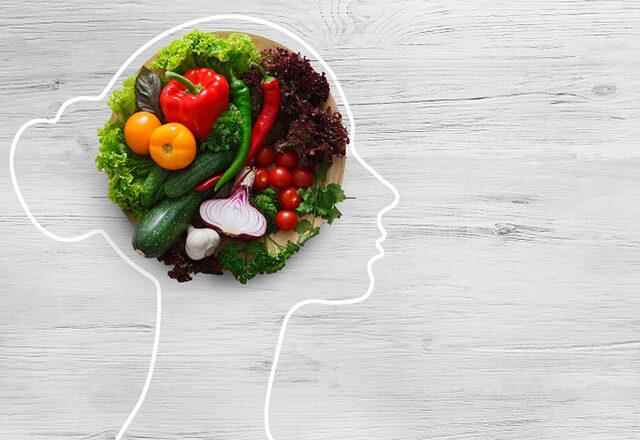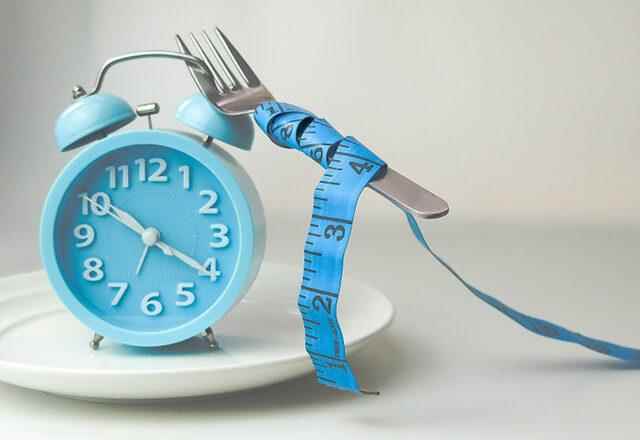Harmful living habits acquired without realizing it can affect our health. Eating fast food is also among these habits. Especially in Ramadan, being hungry during the day and giving weight to food at iftar cause health problems. Internal Medicine Specialist Dr. Mehmet Akif Öztürk also emphasized that, apart from the generally known harms, those who swallow their bites without chewing enough and eat very quickly are at risk of obesity. Öztürk said that a scientific study conducted in 2020 revealed that those who eat fast eat more food to feel full than those who eat slowly.
THE LONGER I CHEEW, THE FEELING OF SATISFACTION CAN BE PROVIDED WITH LESS FOOD
According to the study conducted by Dutch scientists on 60 volunteers and the results of which were published in the ‘American Journal of Clinical Nutrition’ in 2020; The slower the eating speed, the longer the chewing, the less the feeling of satiety can be achieved with less food. Yeditepe University Kozyatağı Hospital Internal Diseases Specialist. Dr. Mehmet Akif Öztürk stated that although it is not correct to generalize according to this study alone, this and similar studies confirm this thesis and continued his words as follows: “In people who eat fast, higher food intake means more calorie intake. This situation actually creates a serious risk factor for obesity. As a result, obesity is caused by an imbalance between calories consumed and calories spent.
SOLID FOODS EXTEND CHW TIME

exp. Dr. According to the information given by Mehmet Akif Öztürk, people who eat fast have a higher risk of obesity compared to those who eat slowly. Stating that it is necessary to know two important concepts in order to understand the study more clearly, Uzm. Dr. Öztürk said, “One of them (ADM) is intraoral sensory exposure, that is, we can call it the sense of sensation perceived through the receptors on the tongue. ADM is higher with longer chewing time or with solid foods, whereas it decreases with liquid or pureed foods and with less chewing time. The other concept, as the name suggests, is (YH) Eating Speed concepts.” Said.
FAST SWALLOWED FOODS SUCH AS PUREE MUST NOT BE PREFERRED TOO MUCH

Stating that there are basically 4 groups and a control group in the study, Uzm. Dr. M. Akif Öztürk said, “The volunteers were observed by dividing them into groups with different eating patterns. Volunteers in each group were intermittently subjected to satiety questionnaires, and at the same time, blood samples were taken from the volunteers in the first minutes of their feeding and at the end of the feeding, and their blood glucose, insulin ghrelin and pancreatic peptide hormone levels were determined. Saying that another result of the study is that when the meal is not a meal that can be eaten quickly without the need for mash-like chewing, it is determined that it is possible to be satiated with less nutrients as the sensory exposure in the mouth increases. Dr. M. Akif Öztürk added that, from this point of view, fast swallowed foods such as mash should not be preferred too much, except for situations that are not mandatory in daily life.
FAST EATERS GET hungrier quicker
Stating that another parameter observed in the research group is a link between fast food and satiety, Dr. Öztürk said, “With foods that require more chewing time, the feeling of hunger during meals is also less. In addition, the need for a new meal at the end of the meal is also less. Research shows us that those who eat more quickly become hungry more quickly after the meal.
CHW TIME MUST BE 15 SECONDS

Yeditepe University Kozyatağı Hospital Internal Medicine Specialist, who warns that eating more slowly can increase satiety hormone levels, help you feel full faster, and reduce calorie intake. Mehmet Akif Öztürk also said that it is possible to change the fast-eating behavior. Pointing out that the importance of the subject should be emphasized and trainings should be given in order to create a certain awareness on this issue, Uzm. Dr. Öztürk said, “Instead of feeding with simple foods that are easy to digest and can be swallowed without chewing, more complex, slower digesting and absorbing healthier foods should be preferred. In this regard, nutritional arrangements can be made in this direction by getting support from a physician or dietitian, which foods are more suitable for us. In addition, I recommend that the chewing time be adjusted to be at least 15 seconds per bite,” he continued.
FAST EATERS MORE RISK OF OBESITY

“In fast food eaters, higher nutrient intake means more caloric intake. This situation actually creates a serious risk factor for obesity. Ultimately, obesity results from an imbalance between calories consumed and calories expended. Of course, losing weight by eating slowly alone will not be enough. As a result, optimal weight control can be achieved not only by limiting calorie intake, but also by keeping the calories consumed at a certain level. But we can easily say that we can create a starting point on the way to healthy eating by creating a controllable eating behavior, in addition to needing less nutrients with slow eating.”
